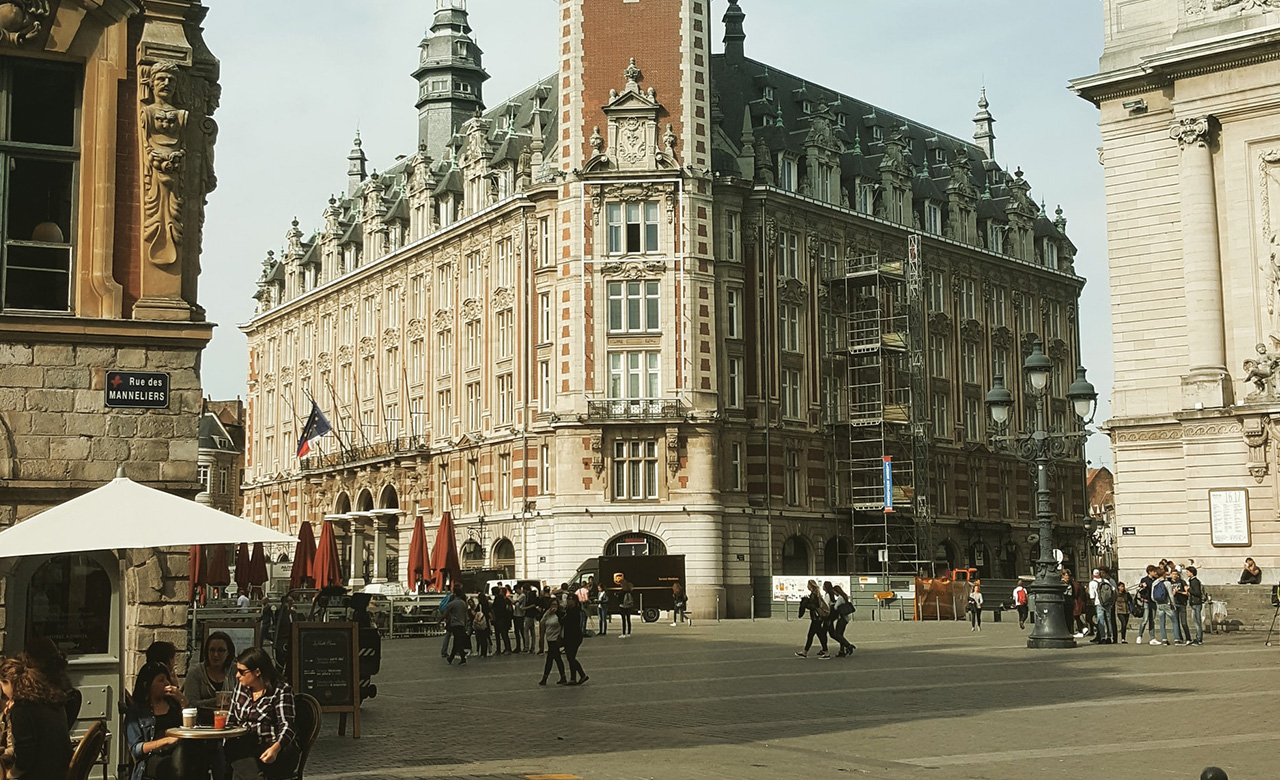Study in France
France has long been a European and global centre of philosophy, arts, culture, and science, and is now a global business, technology, and tourism centre. With over 85 million visitors each year, France is a major tourist attraction. A plan to study in France will add to the value of your resume. The country has the fifth-largest number of the Unesco World Heritage Sites and the seventh-largest economy in the world. This makes studying in France for international students a very popular option. The French higher education system is known for its extensive training, interactive learning environment, and commitment to high-quality education.
Education System in France
You can choose from a wide range of Bachelor's, Master's, and Doctorate degrees as an international student in France. There are two types of classes in the French university system: Magistraux (lectures) and Travaux Dirigés (practical or laboratory work). Higher education institutions in France are divided into three categories -
- Universities: Degrees in a variety of fields can be earned through university education. Degrees are awarded at three different levels of achievement, called cycles, within a framework known as licence, master, and doctorate (LMD).
- The Grandes Écoles: Are a collection of prestigious public and private schools. They're similar to universities, but they usually offer a three-year programme in business, public administration, or engineering. Students are accepted into the Grandes écoles based on performance on a competitive exam.
- Specialized Schools: They're public or private academic institutions that start preparing students for careers in art, architecture, social work, or tourism.
Why Study in France
Studying in France for international students will not only expose you to a new culture, tradition, and way of life, but you will also have the opportunity to contribute and share aspects of your own culture, tradition, and lifestyle with the new culture. Here are some of the benefits of why studying in France could benefit you:
- An internationally renowned higher education system.
France's excellence in higher education and research is well-known throughout the world. The Times Higher Education, the Financial Times ranking, the QS, the Shanghai ranking, and the European Union's U-Multirank all rank numerous French universities and Grandes Ecoles highly in the most reputable international rankings. A future decision to study abroad in France allows you to take advantage of their higher education facilities.
- A trip to France.
By wanting to study abroad in France, you will have the opportunity to learn about a multicultural and open society that is proud of its history and optimistic about the future. France is always delighted to share the art of living à la française, a world-renowned art form. No one is disappointed in France, whether their interests are in the theatre, music, or fine cuisine, there is something for everyone.
- Meeting people is a big part of student life in France.
The French and international students, as well as the faculty and staff at your host university, will make your stay unforgettable. When you study in France, you will learn about all of the benefits that the country has to offer. The various services provided by French universities make student life easier. This academic stay in France will be beneficial to your future professional life. You'll walk away with critical knowledge and an internationally recognised certification.
- Culture as an art.
Exhibitions, concerts and the theatre are all popular pastimes among the French. There is a vast cultural offer in France. With the arrival of summer, festivals spring up all over the country, providing an ideal opportunity to learn about French culture and meet new people. Films, plays, paintings, and other works of art created in France are also a window into the country's well-known art of living.
Available Courses To Study
Let’s take a look at some of the popular university courses in France available for international students who want to study abroad and for domestic students as well:
Finances
Cost Of Education
In comparison to other European countries, many universities in France, particularly public universities, used to have lower tuition fees. However, international students in France have had to pay a slightly higher tuition fee in recent times. Students can also apply for many France scholarships to cut down on their expenses while planning to study in France.
The following is a general overview of the cost of tuition in France:
|
Degree |
Cost Of Tuition (Per Year) |
|
Bachelor’s Courses |
EUR 2,770 |
|
Master’s Courses |
EUR 3,770 |
|
Doctoral Courses |
EUR 380 |
Source: Study Eu
Cost Of Living
Residing in France is typically more expensive due to the country's high cost of living. To help you understand the budget for a living while you plan to study in France, here's a table below that provides a general breakdown of the various monthly expenses:
|
Particulars |
Average Monthly Cost |
|
Accommodation |
EUR 550 - EUR 700 |
|
Basic Utilities (Electricity, Water, etc.) |
EUR 140 |
|
Monthly Pass (Transport) |
EUR 48 |
|
Telephone, Internet, etc. |
EUR 28 |
|
Recreation |
EUR 100 |
|
Food and Drink |
EUR 145 |
|
Monthly Average Spend |
EUR 1,011 - EUR 1,711 |
Note: Students considering relocating to France should keep in mind that the costs listed above are an estimate of all costs.
Cost Of Studying In France
Interest rates as low as 8.9% *
Avg. on-campus living expense €15,443.4
250K+
Students Assisted
800Cr+
Loan Amount Disbursed
5000+
Loans Sanctioned
Admission Process
Educational Requirements:
Undergraduate Study -
If you've decided on a school, you should apply at least two months before the course begins. To enrol in an undergraduate programme, you must have the following qualifications:
- A French Baccalaureate (which is equivalent to a 10+2 in France).
- Pass the entrance exam of the university of your choice.
Post-Graduate Study -
A postgraduate programme in the country follows the same application process as a graduate programme. In France, there are two types of post-graduate programmes:
- Taught Master’s (MAs/MScs/MEng)
- Research Master’s (MRes/MA by Research)
Keep in mind that international students applying to a French college or university must have their passports with them during the application process.
Doctorate Study -
In France, doctoral programmes are delivered in French, with language requirements set by each institution. Unless you have studied French academically or have an equivalent proficiency certificate, candidates seeking to advance beyond a masters degree in France must take a French proficiency test. The Campus France portal is used for all other application processes. Many institutions also conduct Skype interviews with international applicants.
Documentation Requirements:
Different institutes have different admissions criteria and require different documents, but the following are some of the most common ones:
- All academic transcripts from secondary school must be attested.
- IELTS, TOEFL or other tests of English language proficiency.
- Test results from the GMAT, GRE, and other exams (if applicable)
- Academic References.
- Passport Size Photographs
- Statement of Purpose (SOP).
- Resume/CV.
- A Portfolio (applicable for design courses).
Visa Process and Requirements
To apply for your visa, you must contact the French consulate in your home country and provide the following information when requested. For international students wishing to study abroaad in France, there are three types of visas available:
- Short-Stay Student Visa: This visa entitles you to enter the country and stay for three months. It's a good choice for students taking short-term courses.
- Temporary Long-Stay Student Visa: This visa allows you to stay and study in France for no more than six months.
- Long-Stay Student Visa: This visa allows international students to stay for the longest period possible, allowing them to enrol in long-term courses for three years or more.















